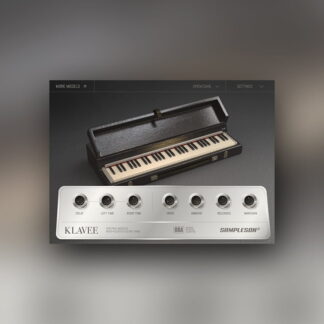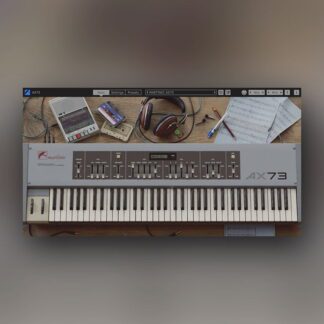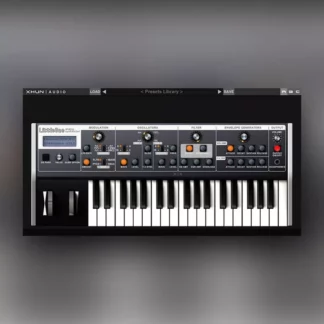Xhun LittleOne
 Overview
Overview
LittleOne is a faithful software emulation of one of the most legendary and appreciated hardware analog synthesizers, compact in design but also extremely powerful and expressive.
In addition to an accurate re-creation of the original signal path, every single component inside LittleOne (oscillators, filter, envelopes, etc.) prove the same original architecture, frequency response and operative range of its analogue hardware counterpart, producing a deep, rich and warm sound.
Add to the equation a full rack with a 16-step analogue sequencer, a 16-step trancegate effect, two insert/master effects slots and the result is a complete, true-analogue-sounding setup within the comfort of a modern digital studio.
Nobody’s Perfect
Perfection is not of this world. In nature, due to its inherent complexity (and beauty), everything is unpredictable, seemingly – for us – out of control. This makes things so special.
This is true for everything, also for musical instruments. Based on analog electronics components, an analog synthesizer brings within itself all the imperfections of this technology.
This is why it sounds so warm and rich.
LittleOne synthesizer is entirely built upon this concept. The adoption of the Advanced Component Simulation (ACS) approach ensures that every component inside LittleOne is simulated preserving its original analogue hardware architecture and physical properties – including its own micro-imperfections and unique, time-varying instabilities. This means that – playing the same note twice – LittleOne will never produce exactly the same sound, not in a million years or more. Just as nature teaches us.
In addition, it is also possible to modify the electrical tolerances for each of the analogue components used inside the synthesizer. Choosing stable components will mimic a modern manufacturing process, while choosing unstable components will take you back in time, and everything inside LittleOne will behave as it was manufactured in the 1970s, making it even bolder and meaner.
This high-end approach assures brilliance, genuineness and depth to the sound.
Features
-
Physical modeling simulation of real analogue hardware, achieved by the adoption of the Advanced Component Simulation (ACS) approach – oscillators, filters, envelopes (,…) are built preserving their original architecture, featuring all the micro-instabilities and imperfections of the analogue technology
-
Full 64-bit processing accuracy for every single aspect of the simulation
-
An all-in-one complete setup : analogue synthesizer + analogue sequencer + trancegate effect + insert/master effects
-
Two aliasing-free analogue modeled oscillators proving the same capacitors’ charging/discharging responses as found on the original analogue circuits, featuring a continuous waveform selection mode (morphing) between triangle, sawtooth, square, pulse (including pulse width modulation)
-
A legendary 4-pole resonant, analogue low pass ladder filter (modeled by the adoption of the topology-preserving transform / zero-delay feedback approach) proving all the original non-linearities, frequency responses (also at extreme modulation scenarios), self-oscillation, soft-clipping and overload control
-
Two 4-stage (ADSR) envelope generators proving the same capacitors’ charging/discharging responses as found on the original analogue circuits
-
Extended modulation possibilities, including a white noise generator, a sample-and-hold source and a multi-waveform low-frequency-oscillator (LFO) featuring the original frequency range (from 0.2 Hz up to 500 Hz), allowing for advanced frequency modulation designs
-
True analogue polyphony. In addition to a classic monophonic mode, polyphony (4-voices) is achieved by simulating four fully-independent synthesis systems (devices) separately, as expected in the original hardware specification extension. Each of the four independent voices (devices) can also be tuned/detuned separately for an even more deep and rich polyphonic sound
-
Analogue components selector. Choose what kind of components to use inside LittleOne : select ultra-stable components, phase-locked oscillators (like in most recent analogue synthesizers) or select aged, much more unstable components and disable the phase-lock of the main oscillators
-
Accede all the advanced features like the alternative modulation sources/destinations, set the velocity to control the filter cutoff, extend the pitch bend range, select the MIDI input channel and much more – all from the operating system led display
-
Including XSQ16A unit (rack), a monophonic 16-step analogue sequencer
-
Including GAT3D unit (rack), a 16-step trancegate effect
-
Including two insert/master effects slots with the possibility to choose :
-
X-TREME unit (rack), an accurately modeled, ground-shaking tube distortion effect
-
FLANG-R unit (rack), an expressive stereo flanger effect
-
CHOR-S unit (rack), an expressive stereo chorus effect
-
D-LAY unit (rack), a tempo-synced stereo delay effect
-
REEVERB unit (rack), a resonator-based electronic reverb effect
-
Including a huge 400+ ready-to-use factory presets collection covering all styles, from vintage analogue leads and basses to frequency modulation sequences, contemporary cutting-edge electronic motion pads, trance stabs, complex psychoacoustic constructions, percussive and special sound effects. All the original Little Phatty¹ factory patches (Stage Edition and Tribute Edition) are also included
-
Additional presets/patches available as commercial expansions
-
MIDI automation, with CC# mapping following the original Little Phatty¹ MIDI CC# specs
-
Support for sample rates from 44.1 kHz up to 192 kHz
-
Available in multi-size GUI resolutions

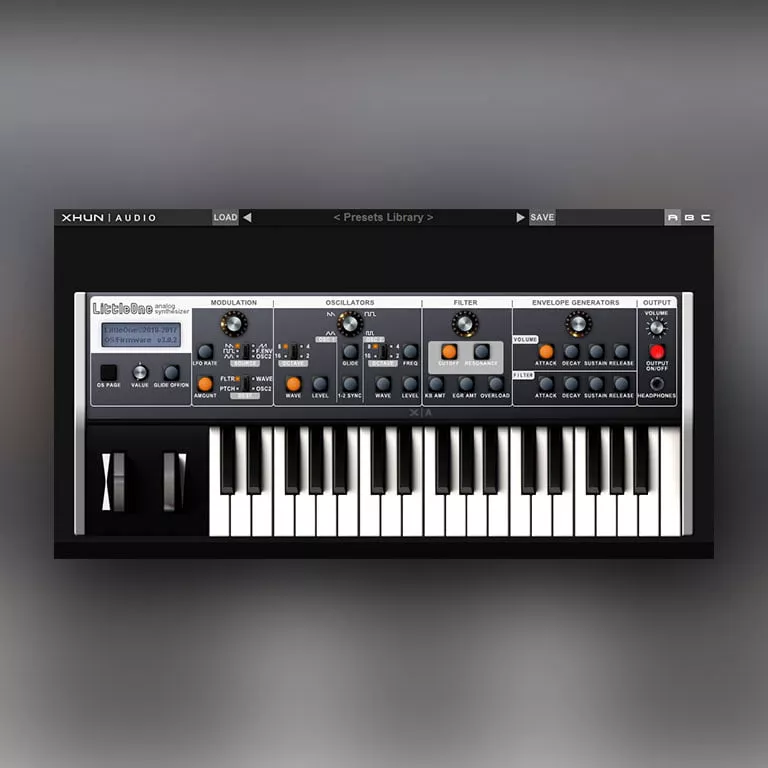
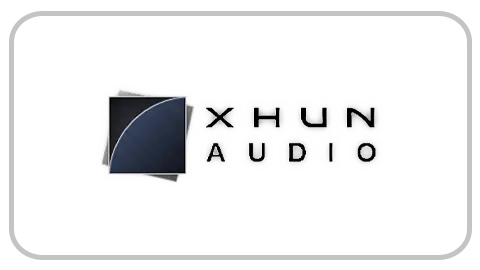
 Overview
Overview